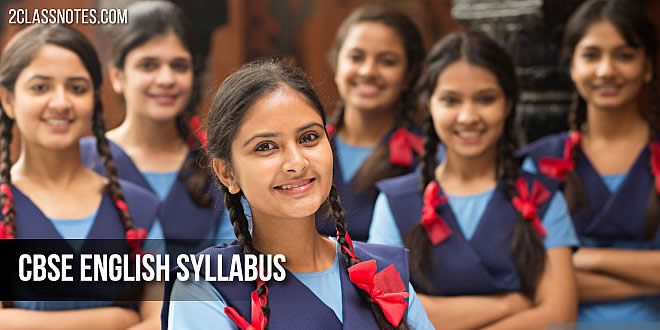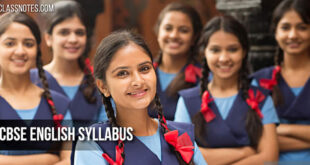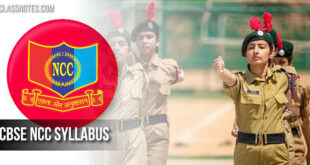CBSE Class 9 English Language and Literature Syllabus: Are you a Class 9 student or a parent curious about the latest English Language & Literature syllabus for 2025-26? Wondering what changes have been made and how they will impact your studies? You’re in the right place!
CBSE Class 9 English Language and Literature Syllabus
English is more than just a subject—it’s a skill that helps you express yourself, think critically, and succeed academically and beyond. This year’s syllabus aims to make learning more engaging, focusing on reading, writing, grammar, and literature while aligning with the latest educational trends.
In this blog, we’ll walk you through:
- A detailed breakdown of the syllabus
- Important topics and chapters you’ll study
- Changes or updates compared to last year
- How to prepare effectively for exams
Whether you love literature or find English a bit challenging, understanding the syllabus is the first step towards better preparation. Let’s dive in! Tech-oriented students might enjoy pairing English CBSE Class 9 Computer Applications Syllabus. This helps build digital skills, which are increasingly important for writing, communication, and research.
Competency-Based Paper Design Class 9 English
| Sections | Bloom Typologies (as per NEP 2023) | Total Marks |
| Reading Skills | Understanding | Decoding | Analysing | Inferring | Interpreting | Vocabulary | 20 marks |
| Creative Writing Skills and Grammar | Creative Expression | Reasoning | Justifying | Illustrating | Application | 20 marks |
| Language through Literature | Recalling | Reasoning | Justifying | Writing | 40 marks |
| TOTAL | 80 marks | |
English Language And Literature Blueprint Class 9 English
| Section | Topics | Marks |
| A Reading Skills |
Discursive Passage | 20 |
| Case-based Passage | ||
| B Creative Writing Skills |
Descriptive Paragraph | 10 |
| Diary Entry/ Story | ||
| B Grammar |
Tenses, Modals, Subject – Verb Concord, Reported Speech, Commands and Requests, Statements, Questions, Determiners | 10 |
| C Literature (Beehive & Moments) |
Reference to the Context | 40 |
| Short & Long Answers | ||
| INTERNAL ASSESSMENT* Pen Paper Test (05) + Multiple Assessment (05) + Portfolio (05) + Subject Enrichment (05) |
20 | |
| TOTAL | 100 | |
*NOTE: Assessment of Listening and Speaking Skills will be for 5 marks. It is recommended that listening and speaking skills should be regularly practised.
English Language & Literature Syllabus Class 9: Course Structure
The Class 9 English Language & Literature syllabus for the 2025-26 academic year is structured to enhance students’ reading, writing, grammar, and literary appreciation. This syllabus follows a skill-based approach, helping students improve their communication and analytical thinking through a well-balanced mix of fiction, poetry, and non-fiction texts.
Let’s break down the syllabus into its Important components:
Reading Skills (20 Marks)
Reading comprehension is an essential skill tested in exams. The syllabus includes unseen passages that assess students’ ability to:
- Extract information and draw inferences
- Identify the central theme and purpose of the text
- Understand vocabulary in context
Types of Reading Passages:
Factual Passages: These contain data, statistics, and facts, requiring students to interpret information accurately.
Descriptive/Literary Passages: These include excerpts from stories, biographies, or travelogues, testing students’ ability to analyse characters, themes, and literary devices.
Poetic Extracts: Short extracts from poems may be included, requiring students to identify rhyme schemes, metaphors, and poetic themes.
Tip: To ace this section, practise skimming and scanning techniques and work on time management while answering comprehension questions.
Writing & Grammar (20 Marks)
This section develops creative and structured writing skills while reinforcing grammatical accuracy.
Writing Section:
Students will be required to write well-organised pieces based on given topics. The formats included are:
Descriptive & Narrative Writing
- Writing descriptions of events, places, or experiences
- Narrating real or imaginary stories in a structured manner
Diary Entry
- (stories, diary entries, articles)
Tip: Use clear sentence structures, avoid repetition, and support your ideas with relevant examples to score well.
Grammar Section
The syllabus includes:
- Tenses (Past, Present, Future) – Application of verb forms
- Modals (can, could, may, might, should, etc.) – Expressing possibility, obligation, and permission
- Subject-verb agreement – Ensuring consistency in singular/plural usage
- Clauses (Noun, Adjective, Adverbial) – Understanding sentence structures
- Reported Speech – Converting direct to indirect speech (statements, commands, and questions)
Tip: Regularly practise grammar exercises and focus on contextual usage rather than memorisation.
Literature (Prose & Poetry) – 40 Marks
The literature section is designed to develop critical thinking, empathy, and literary appreciation. It is divided into two parts:
Prose (Short Stories & Fiction)
Students will study carefully selected stories that highlight themes of society, relationships, values, and human emotions. Questions will assess:
- Theme & moral lessons
- Character sketches & motivations
- Narrative style & literary techniques
1. Beehive (Prose): Chapter-Wise Breakdown
Chapter 1: The Fun They Had
- Summary: Set in the future, this story by Isaac Asimov reflects on the contrast between traditional and virtual education. Two children discover a book about schools from the past, and they realize how different learning used to be.
- Themes: Technological advancements, education, and nostalgia for the past.
- Important Skills: Understanding futuristic fiction, comparing traditional and modern learning methods.
Chapter 2: The Sound of Music
- Summary: This chapter tells the inspiring stories of two musicians—Evelyn Glennie, a deaf percussionist, and Bismillah Khan, a maestro of the shehnai.
- Themes: Determination, overcoming physical disabilities, and passion for music.
- Important Skills: Biographical reading, motivational themes, understanding music as a universal language.
Chapter 3: The Little Girl
- Summary: This story by Katherine Mansfield highlights the strained relationship between a young girl, Kezia, and her strict father. It reveals how misunderstandings can create distance between parents and children.
- Themes: Family relationships, childhood fears, emotional connection.
- Important Skills: Analyzing parent-child relationships, understanding character development.
Chapter 4: A Truly Beautiful Mind
- Summary: A biographical account of Albert Einstein’s journey from a rebellious child to a world-renowned scientist, emphasizing both his scientific contributions and his humanitarian values.
- Themes: Intelligence, curiosity, peace advocacy.
- Important Skills: Reading biographical narratives, understanding scientific achievements and moral values.
Chapter 5: The Snake and the Mirror (Deleted)
- Summary: This humorous story is about a young doctor who encounters a snake in his room. The situation makes him reflect on vanity and the unpredictability of life.
- Themes: Vanity, fear, the unpredictability of life.
- Important Skills: Comprehension of humor, analyzing human behavior under stress.
Chapter 6: My Childhood
- Summary: This chapter is an excerpt from the autobiography of A.P.J. Abdul Kalam, showcasing his early years and the influence of his upbringing on his later life.
- Themes: Childhood, family values, education, and ambition.
- Important Skills: Understanding autobiographical elements, cultural diversity, and early influences on character.
Chapter 7: Packing
- Summary: This amusing narrative by Jerome K. Jerome depicts the chaos caused by overconfidence in one’s packing abilities. The story humorously reflects on the inefficiency and disorder that follows.
- Themes: Humor, overconfidence, human nature.
- Important Skills: Reading humorous texts, understanding human flaws.
Chapter 8: Reach for the Top
- Summary: This chapter tells the inspiring stories of Santosh Yadav, the first woman to climb Mount Everest twice, and Maria Sharapova, the tennis sensation.
- Themes: Perseverance, ambition, breaking barriers.
- Important Skills: Biographical reading, motivation and goal setting, overcoming challenges.
Chapter 9: The Bond of Love
- Summary: This is a heartwarming story of a bond between a woman and her pet sloth bear, emphasizing the compassion and affection humans share with animals.
- Themes: Love for animals, compassion, relationships.
- Important Skills: Understanding themes of compassion and bond between humans and animals.
Chapter 10: If I Were You
- Summary: This play by Douglas James revolves around a witty exchange between Gerrard, a playwright, and a criminal who plans to impersonate him. Gerrard’s cleverness turns the tables on the intruder.
- Themes: Intelligence, wit, crime.
- Important Skills: Analyzing plays, understanding dramatic irony.
Poetry (Analysis & Appreciation)
Poems included in the syllabus will help students understand:
- Poetic devices (metaphor, simile, personification, alliteration, etc.)
- Imagery & Symbolism
- Mood & Tone of the poem
Tip: While studying literature, make summary notes of each chapter and poem, including Important themes and important quotes.
2. Beehive (Poetry): Chapter-Wise Breakdown
Poem 1: The Road Not Taken (Robert Frost)
- Summary: A reflective poem about choices in life and the impact of decisions.
- Themes: Decision-making, individuality, and self-reflection.
- Important Skills: Interpreting symbolism, making connections between poetry and life.
Poem 2: Wind (Subramania Bharati)
- Summary: The poem explores the destructive power of wind and its symbolic relation to life’s hardships.
- Themes: Strength, resilience, natural forces.
- Important Skills: Understanding metaphors and symbolism in poetry.
Poem 3: Rain on the Roof (Coates Kinney)
- Summary: The poet expresses his love for the sound of raindrops on the roof and the memories they evoke.
- Themes: Nostalgia, comfort, nature’s soothing power.
- Important Skills: Sensory imagery, evoking emotions through nature.
Poem 4: A Legend of the Northland (Phoebe Cary)
- Summary: A folk ballad narrating the story of a selfish woman who is punished by Saint Peter for her greed.
- Themes: Greed, morality, consequences.
- Important Skills: Understanding ballads, moral lessons.
Poem 5: No Men are Foreign (James Kirkup)
- Summary: The poem advocates universal brotherhood and peace, emphasizing that people from different nations are not different from us.
- Themes: Equality, anti-war, unity.
- Important Skills: Global perspective, understanding anti-war messages in poetry.
Poem 6: The Duck and the Kangaroo (Edward Lear)
- Summary: A humorous poem about a duck who longs to travel and seeks help from a kangaroo.
- Themes: Adventure, friendship, and curiosity.
- Important Skills: Reading and analyzing light-hearted, humorous poems.
Poem 7: On Killing a Tree (Gieve Patel)
- Summary: This poem focuses on the process of uprooting a tree, symbolizing the destruction of nature by humans.
- Themes: Nature, destruction, survival.
- Important Skills: Environmental awareness, interpreting symbolic messages.
Poem 8: The Snake Trying (W.W.E. Ross)
- Summary: The poet describes a harmless snake trying to escape from humans who want to kill it, conveying sympathy for all creatures.
- Themes: Co-existence, compassion for animals.
- Important Skills: Creating empathy, understanding fear and survival in nature.
Poem 9: A Slumber Did My Spirit Seal (William Wordsworth)
- Summary: A short, reflective poem about the inevitability of death and its impact on the speaker’s emotions.
- Themes: Mortality, loss, nature’s cycle.
- Important Skills: Analyzing philosophical reflections through poetry.
3. Moments: Chapter-Wise Breakdown
Chapter 1: The Lost Child
- Summary: A child gets lost in a fair and is too overwhelmed by the loss of his parents to enjoy the things he previously desired.
- Themes: Parental love, innocence, priorities.
- Important Skills: Understanding emotional shifts in storytelling.
Chapter 2: The Adventures of Toto
- Summary: The humorous mischief of a pet, Toto, and the trouble he causes for his owner.
- Themes: Mischief, care for animals.
- Important Skills: Comprehending animal behavior and storytelling humor.
Chapter 3: Iswaran the Storyteller
- Summary: A tale about a boy named Mahendra and his imaginative servant Iswaran, who narrates fascinating stories.
- Themes: Storytelling, imagination, trust.
- Important Skills: Exploring oral storytelling traditions.
Chapter 4: In the Kingdom of Fools
- Summary: A humorous story of a kingdom where both the king and the subjects act foolishly, resulting in comical and absurd situations.
- Themes: Foolishness, wisdom.
- Important Skills: Analyzing satire and irony.
Chapter 5: The Happy Prince
- Summary: The story of a golden statue who helps the poor through a swallow, showcasing compassion and sacrifice.
- Themes: Charity, compassion, selflessness.
- Important Skills: Understanding themes of sacrifice and social responsibility.
Chapter 6: Weathering the Storm in Ersama (Deleted)
- Summary: Based on a real-life incident, this story describes the resilience of a boy who survives a cyclone and helps rebuild his village.
- Themes: Courage, resilience, disaster recovery.
- Important Skills: Analyzing human strength and natural disasters.
Chapter 7: The Last Leaf
- Summary: A touching story of friendship and hope, where an old artist saves a girl’s life by painting the last leaf of a tree.
- Themes: Hope, friendship, and sacrifice.
- Important Skills: Understanding symbolism and thematic depth.
Chapter 8: A House is Not a Home
- Summary: The story deals with the emotional journey of a boy who learns to cope with the loss of his house and his beloved pet.
- Themes: Loss, rebuilding life, emotional strength.
- Important Skills: Analyzing personal loss and recovery.
Chapter 9: The Beggar
- Summary: A beggar transforms his life after being offered help and dignity by a kind woman.
- Themes: Kindness, transformation, dignity of labor.
- Important Skills: Understanding character growth and societal values.
Assessment & Exam Pattern:
The evaluation will include:
Internal Assessment (20 Marks)
- Listening & Speaking Skills – Activities to develop oral fluency, pronunciation, and listening comprehension
- Periodic Tests & Assignments – Small tests and project-based assessments
- Portfolio Submission – Handwritten assignments, creative writing pieces, and reflections
Final Exam (80 Marks)
- Reading Skills – 20 Marks
- Writing & Grammar – 20 Marks
- Literature – 40 Marks
 Class Notes NCERT Solutions for CBSE Students
Class Notes NCERT Solutions for CBSE Students





